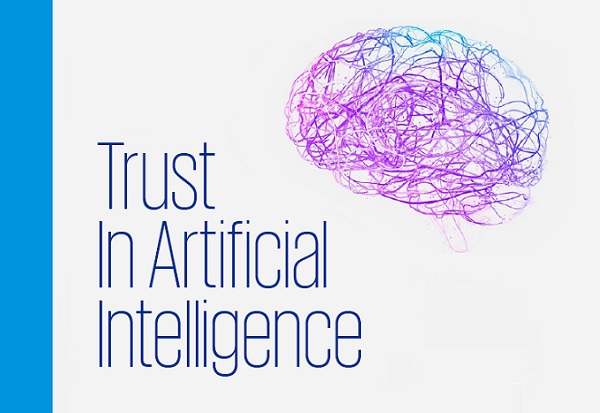Introduction – Trust in Artificial Intelligence
Artificial Intelligence (AI) is an increasingly ubiquitous part of the everyday lives of Australians that is transforming the way we live and work. AI is used in a range of applications, such as calculating the best travel route to take in real-time, predicting what customers will buy, identifying credit card fraud, helping diagnose disease, identifying people from photos, and enabling self-driving vehicles.
All sectors of the Australian economy are embracing AI. In the words of Klaus Schwab, Chairman of the World Economic Forum, we are entering a fourth industrial revolution characterised ‘by a fusion of technologies that is blurring the lines between the physical, digital, and biological spheres’
The benefits and promise of AI for society and business are undeniable. AI is helping people make better predictions and informed decisions, is enabling innovation, productivity gains and improved efficiency, and lowering costs. It is helping protect physical and financial security (e.g. through fraud detection) and facilitating the current global fight against COVID-19.
The risks and challenges that AI poses for society are equally undeniable. These include the risk of codifying and reinforcing unfair biases, infringing on human rights such as privacy, spreading fake online content, technological unemployment and the dangers stemming from mass surveillance technologies, critical AI failures and autonomous weapons. These issues are causing public concern and raising questions about the trustworthiness and regulation of AI systems.
The public’s trust in AI technologies is vital for its continued acceptance. If AI systems do not prove to be worthy of trust, their widespread acceptance and adoption will be hindered, and the potential societal and economic benefits will not be fully realised.
Despite the central importance of trust for the widespread use and acceptance of AI in society, to date little is known about the Australian community’s trust in AI or what influences it. Instead, current thinking has been informed by supposition, speculation and surveys in other jurisdictions.
This national survey is designed to understand and quantify Australians’ trust in and support of AI, and to benchmark these attitudes over time. By taking the first deep dive into the question of trust, this research provides a comprehensive and nuanced understanding of Australians’ overall trust in AI systems, as well as in specific AI applications in the domains of healthcare, policing, HR and financial investment. These domains represent common applications of AI that relate to citizens, employees and consumers.
This research provides insights into the key drivers of trust, community expectations and confidence in the regulation of AI, expectations of the management of societal challenges associated with AI, as well as Australians’ current understanding and awareness of AI. Importantly, the findings provide a clear understanding of the practices and principles Australians expect organisations to use to responsibly develop and ethically deploy AI in society and the workplace.
Collectively the research insights provide an evidence-based pathway for building and maintaining the trust and acceptance of AI systems by the Australian public. The insights are relevant for informing policy and practice across all three sectors of government, business and non-profits.


